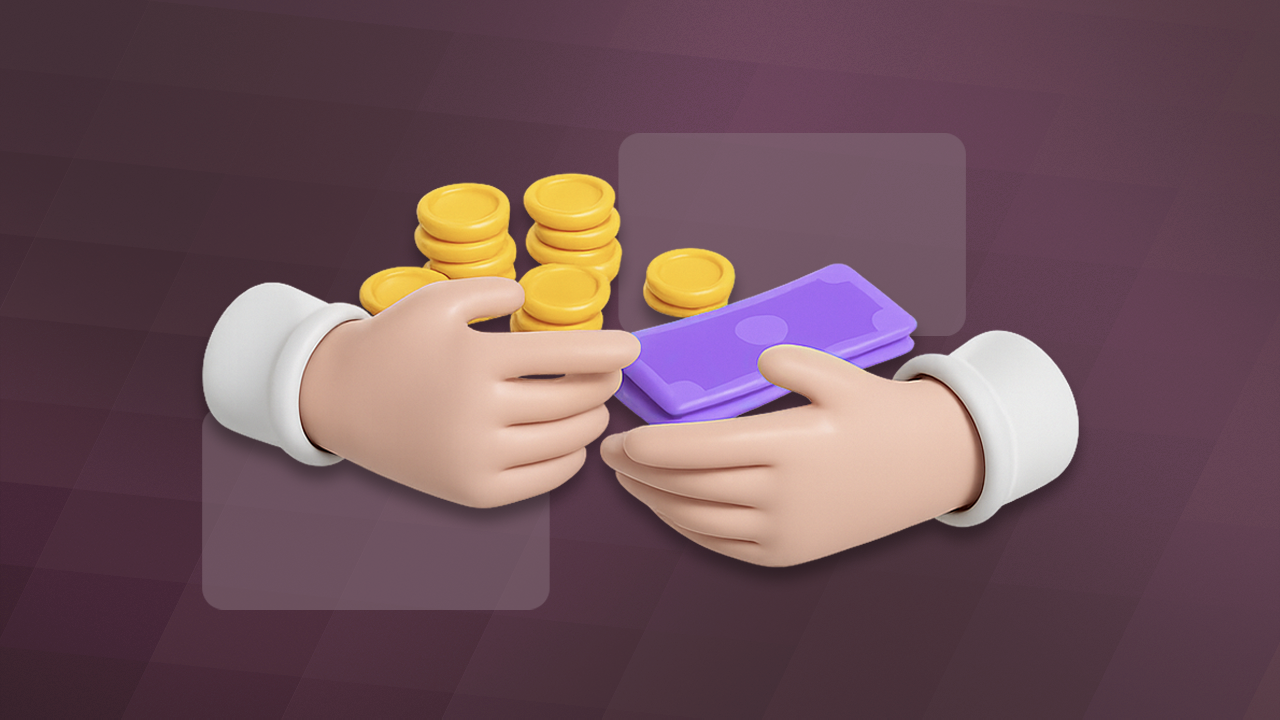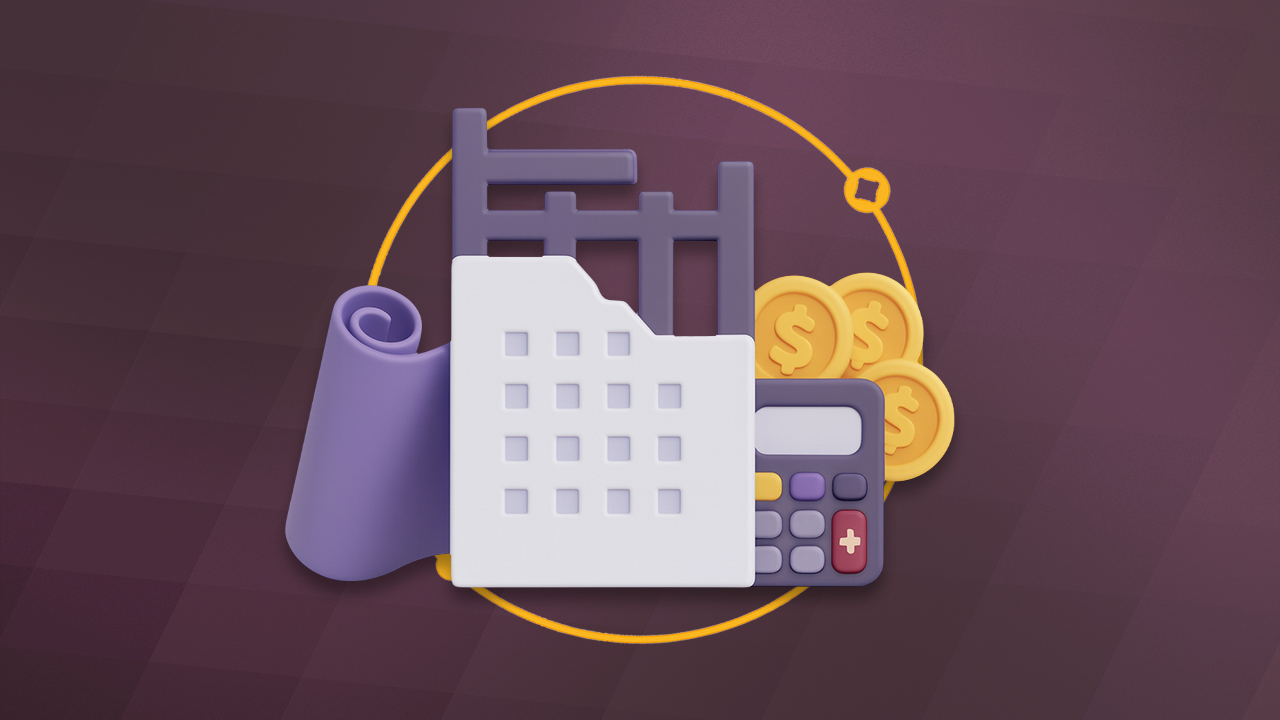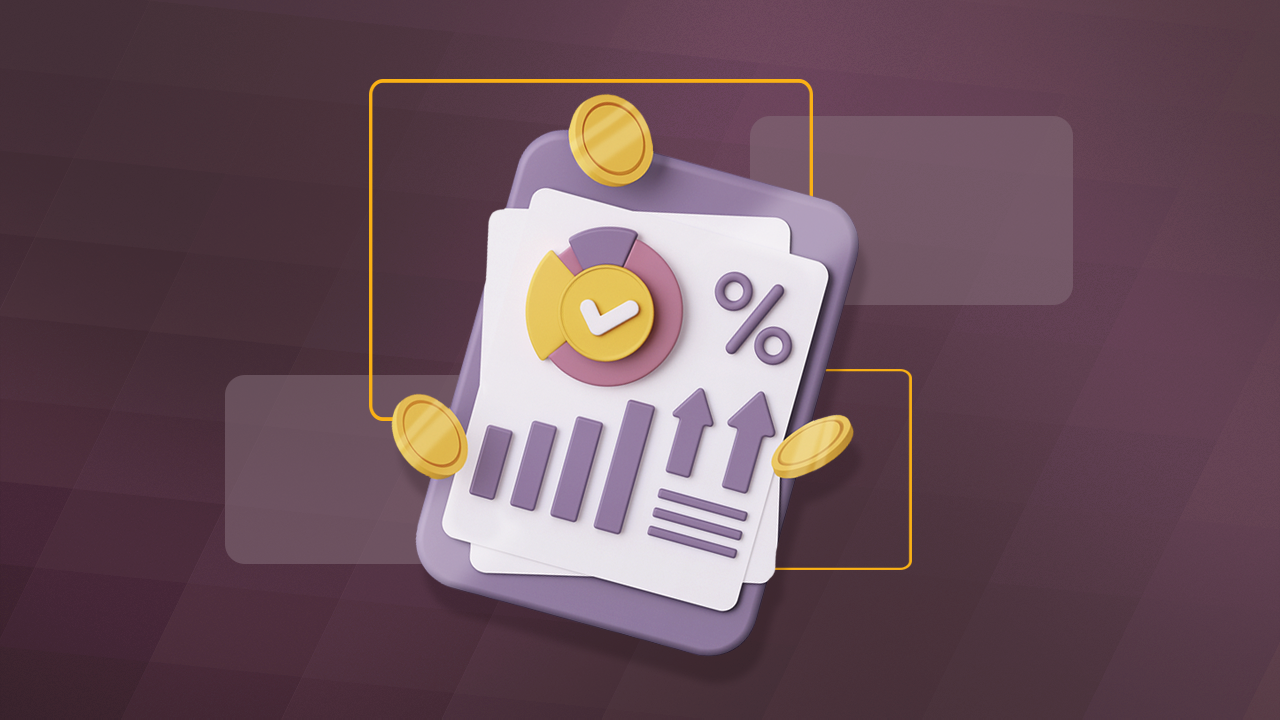If you’re an SMB that needs to process large invoice-based payments, you’re probably relying on ACH transfers.
However, many businesses struggle with finding an adequate ACH transfer service, especially regarding prices and fees. Every dollar counts as far as your bottom line is concerned, and this might leave you asking, “Are ACH transfers free?”
The short answer: ACH transfers are almost never truly free for businesses. They typically encounter transaction fees, monthly subscription costs, or hidden charges that can add up to thousands annually.
That said, certain services, such as Nickel, provide free ACH transfers from all US banks without any hidden fees. Regardless, let’s find out the all-too-often hidden costs that businesses don’t see coming with many ACH transfer services.
First, let’s quickly discuss what ACH transfers are.
Key Takeaways
- ACH transfers are rarely free for businesses, despite how banks and platforms advertise them. Most providers charge transaction fees or impose hidden costs.
- ACH transfers are used for payroll, vendor payments, customer invoices, tax submissions, and recurring billing, making them essential for most businesses.
- Banks and payment processors often add costs through fees for outgoing transfers, subscriptions, transaction caps, or processing speed upgrades.
- Hidden ACH fees include monthly charges, speed surcharges, transaction limits, batch file fees, and penalties for failed transfers.
- Nickel offers genuinely free ACH transfers with no transaction caps, monthly fees, or percentage-based costs—even for payments up to $1 million.
- Eliminating ACH fees can save thousands annually, which businesses can reinvest in growth, staffing, or profit margin improvements.
What Exactly Are ACH Transfers?
ACH (Automated Clearing House) transfers are electronic, bank-to-bank money movements. ACH transfers are the primary system that businesses and agencies use for EFT or electronic funds transfer.
These transfers are processed through the ACH Network, which is governed by the National Automated Clearing House Association (NACHA) and facilitated by the Federal Reserve.
Two Main Types of ACH Transfers
There are two main types of ACH transfers: ACH credits, where money is pushed from one account to another, and ACH debits, where money is pulled from an account:

ACH Transfer Primary Uses for Business
ACH transfers are one of the most practical tools for managing business payments. Whether you're handling payroll or collecting customer payments, ACH can help you reduce costs, save time, and improve reliability.
Here’s how your business can benefit:
- Paying vendors and suppliers
- Receiving customer payments for invoices
- Processing payroll
- Setting up recurring billing
- Submitting tax payments
- Managing internal transfers
The Truth About "Free" ACH Transfers for Businesses
If you're a contractor, distributor, or manufacturer moving large invoice payments, you've likely wondered if those ACH fees you're paying are necessary. After all, the banking system makes ACH seem like a basic service that should come standard.
The reality? The actual cost for a bank to process an ACH payment is only about $0.26 to $0.50 per transaction. Yet many payment processors charge businesses between 0.5% and 1% of the total transfer amount with no cap.
- For a $10,000 invoice payment, that's a $100 fee. Even at the lowest 0.5% rate, you’re paying nearly 10,000% above the bank’s real processing expense, and at the common 1% rate, the markup can exceed 38,000%.
Keeping this in mind, who’s actually charging you these fees?
Get started with Nickel to take advantage of truly free ACH transfers.
Who Actually Charges for ACH Transfers?
The fee structure for ACH transfers varies widely across financial institutions and payment platforms, including various banks and payment processors:
Banks
Most business bank accounts offer some form of ACH transfer capabilities, but "free" almost always comes with limitations:
- Chase: Free incoming ACH, but outgoing transfers cost 1% per transaction, and $25 to $35 for same-day service
- Bank of America: $10 to $25 per batch of ACH payments, plus per-item fees
- Regional Banks: Typically charge $5 to $15 per batch plus per-transaction fees
Payment Processors
Payment platforms that integrate with accounting software often charge the steepest fees:
- QuickBooks Payments: Charges a 1% ACH fee per transaction. As of 2025, this fee is uncapped for new users, which means even a $20,000 invoice could incur a $200 fee. Older accounts may retain a $10 cap, but this is no longer standard.
- Stripe: Charges 0.8% per ACH transaction, capped at $5, making it more reasonable for larger transfers, but still more expensive than flat-fee alternatives for frequent users.
- Melio: Previously offered unlimited free ACH transfers, but now limits its free tier to 5 transfers per month. Additional transfers on the base plan are subject to a 1% fee unless users upgrade to a paid tier.
- Forwardly: Markets itself as a free ACH solution, but its default setting is “Instant Transfer,” which incurs a 1% fee. You must manually switch to “Standard ACH” to access the free option, which can take 1–2 business days to process.
Specialty Financial Institutions
There are also other specialty financial institutions that offer ACH transfers, including Tradestation and Elevations Credit Union:
- Tradestation ACH Transfers: Tradestation, primarily a trading platform, does offer free ACH transfers for funding accounts. However, these are typically limited to personal accounts and have restrictions on transfer frequency and timing.
- Elevations Credit Union ACH Transfers: According to their fee schedule, Elevations Credit Union offers free incoming ACH transfers but charges fees for outgoing transfers and expedited service. Their business accounts have transaction limits and may incur additional fees for high-volume processing.
The 5 Hidden ACH Fees Most Businesses Miss
ACH transfers are often marketed as free or low-cost. However, the reality is that many providers embed fees in ways that are easy to overlook. Here are the five most common ACH-related charges your business may be paying without realizing it.
1. Monthly Subscription Requirements
Some platforms promote “free ACH transfers” but restrict access unless you subscribe to a monthly plan. These plans typically range from $25 to $55 per month, adding a recurring overhead to your payment process.
For example, Melio recently updated its pricing model, reducing free ACH transfers from unlimited to just five per month unless users upgrade to a paid tier. If you're not monitoring usage, your business could end up paying unnecessary fees simply for exceeding a limit that used to be standard.
2. Transaction Limits
Even if your ACH service claims to be free, most banks and processors still impose transaction thresholds.
These typically include:
- Monthly limits on the number of free transfers
- Per-transfer caps on the dollar amount, often $25,000 or less
- Daily and monthly aggregate limits across all transactions
Additional per-transaction fees apply once your business exceeds these thresholds, often ranging from $1 to $5, depending on the provider. You should review your ACH contract or platform dashboard to identify these hidden limits.
3. Processing Speed Upcharges
ACH transfers normally settle in 1 to 3 business days, but faster processing options often come with extra fees. These rush processing charges are not always clearly disclosed.
- Same-Day ACH typically adds $10 to $15 per transaction
- Next-Day ACH often carries a $5 to $10 fee
Some platforms default to faster transfer speeds, which means your business may be paying for premium speed without requesting it. Always check whether your platform allows you to toggle between processing times before initiating a transfer.
4. File Fees and Batch Charges
Beyond per-transaction fees, some banks and processors apply extra costs for file and batch handling.
These often include:
- ACH origination setup fees of $50 to $150
- Monthly maintenance or file access fees between $25 and $50
- Batch submission charges of $5 to $15 per file, particularly when submitting bulk payments to vendors or employees
If your business handles recurring or high-volume payouts, these charges can quietly add up over time. Make sure you understand your provider’s billing structure for batch versus individual transfers.
5. Return and Rejection Fees
Failed ACH transfers can result in significant penalties. These failures may occur due to insufficient funds, closed accounts, incorrect routing numbers, or authorization errors.
Common fees include:
- Return fees ranging from $25 to $35 per failed transaction
- Rejection or administrative handling fees of $10 to $20, even when the error originates from the customer
To reduce these fees, ensure your customers confirm their banking details prior to payment initiation. You can also set up automatic pre-validation tools, which some payment processors offer, to flag potential issues before submission.
The True Cost Calculator: What You're Really Paying
For a wholesale distributor or contractor processing $50,000 monthly in ACH payments ($600,000 per year), here's what you're likely paying with traditional providers:

This doesn't even account for Same-Day ACH premiums or return fees. Keeping these high fees in mind, let’s discuss how SMBs of all sorts can get truly free ACH payments.
How Wholesale Distributors and Manufacturers Can Actually Get Free ACH
There are only a few legitimate ways for businesses processing high-value, invoice-based payments to get totally free ACH transfers.
Option 1: Bank Workarounds With Manual Reconciliation
You can bypass ACH processor fees by initiating payments directly through your bank’s online ACH tools. Many traditional banks offer basic ACH functionality through their commercial or business banking portals, typically included with your monthly account fees.
The catch? You’ll need to manually enter payee details, amounts, and payment dates, and then reconcile those payments manually within your accounting software. This means cross-referencing transaction confirmations with open invoices, which can be tedious and error-prone.
For small businesses with only a few payments a month, this approach might be manageable. But for wholesalers, contractors, or distributors processing dozens of payments, manual reconciliation quickly becomes a time sink. Mistakes like duplicated payments, missed due dates, or incorrect remittance information can also cause major accounting headaches.
The better option is to find a provider that provides 100% free ACH payments and transfers.
Option 2: Switch to a True Zero-Fee ACH Provider
If you're tired of inflated fees, arbitrary transaction limits, and confusing fine print, there’s good news. A few modern payment platforms now offer genuinely free ACH transfers, with no percentage-based charges, no hidden fees, and no subscription requirements.
Nickel is one of the few providers that truly delivers on this promise. Designed specifically for small businesses and trades operating on high-value invoices, Nickel eliminates nearly every traditional pain point associated with ACH payments.
Here’s why Nickel stands out:
- Unlimited Free ACH Transfers: Send and receive as many ACH payments as you want, without per-transaction fees or monthly usage caps.
- Large Transactions, No Extra Cost: Process payments up to $1 million each without a percentage fee, making it ideal if you move large sums with vendors, subcontractors, or customers.
- No Subscription Required: There’s no need to upgrade to a paid plan just to unlock basic functionality. ACH is free for every user.
- QuickBooks Integration: Nickel supports direct integration with QuickBooks software for simplified accounting.
- Faster Settlement Times: Payments clear up to twice as fast compared to leading platforms like Melio or QuickBooks Pay.
- Transparent Support: Nickel provides real-time payment status tracking and live customer support, so you're never left wondering where your funds are.
Nickel is particularly well-suited for industries like construction, wholesale distribution, logistics, and professional services, where high-dollar invoice payments and vendor reliability matter.
- “My company deals with high-value transactions north of $250K. With Nickel, I always know exactly where my funds are. It’s reliable and transparent.”
— Judy Massey, Controller, O’Brien Harris
If you're looking for a clean break from percentage-based ACH fees and reconciliation headaches, switching to a platform like Nickel could be the smartest payment decision your business makes this year.
Why Can Nickel Offer Truly Free ACH When Others Can't?
Most payment processors depend on ACH fees as a core revenue stream. That’s why even platforms advertising “free transfers” often bake in limitations, caps, or require paid subscriptions. We take a fundamentally different approach, focusing on long-term customer value over transactional margins.
Here’s how Nickel sustains truly free ACH transfers:
- Modern Financial Infrastructure: By building its platform on newer, more efficient financial rails, Nickel avoids the legacy costs that burden traditional providers.
- Lean, Scalable Operations: We operate with lower overhead, allowing us to pass savings directly to users rather than inflating fees.
- Revenue From Optional Services: Instead of monetizing every bank transfer, Nickel earns revenue through elective offerings such as credit card processing (2.9% flat rate), check mailing, and working capital tools.
- Industry-Specific Focus: By targeting high-volume, invoice-heavy industries—like construction, manufacturing, and wholesale distribution—Nickel can scale efficiently without trying to serve every market.
This focused and transparent model lets us offer unlimited, fee-free ACH payments without compromising service quality or financial sustainability. For businesses that routinely move large sums and require reliability, the savings can be substantial.
Book a demo with Nickel today.
Why This Matters: The Bottom-Line Impact
ACH fees may seem small on a per-transaction basis, but they add up fast, especially for businesses that handle high-value, recurring payments.
Consider this example:
A construction materials supplier processing $100,000 in ACH transactions each month would pay approximately $12,000 per year in fees if using QuickBooks Payments (1% per transaction).
With Nickel, those same transfers would cost $0—no caps, no monthly subscriptions, no per-transaction fees.
That $12,000 savings isn’t just theoretical. For a small or mid-sized business, it can mean:
- Funding a full-time employee raise or adding staff without increasing payroll costs
- Purchasing new equipment or vehicles to expand service capabilities
- Allocating more to marketing or sales to increase revenue
- Improving net profit margins in a tightening market
When ACH is truly free, your business has more flexibility to reinvest where it matters most. And unlike other platforms that mask fees behind add-ons or limitations, Nickel’s savings are clear and immediate.
Whether you're currently paying 1% to QuickBooks, dealing with complicated bank fees, or being affected by Melio's recent pricing changes, exploring truly free ACH alternatives could save your business thousands annually.
Ready to stop paying unnecessary ACH fees? Sign up now with Nickel and start processing unlimited free ACH transfers today.
Frequently Asked Questions
Can ACH Payments Be Reversed After They're Sent?
Yes, but only in limited cases like fraud or duplication. Reversals must be initiated quickly and typically require proper documentation.
Are ACH Transfers Safe for Large Transactions?
Yes, ACH is secure for high-value payments. Use a provider with fraud detection, encryption, and tracking for added peace of mind.
Do ACH Transfers Work with Accounting Platforms?
Many do, but providers like Nickel offer full syncing with over 200 accounting platforms for automated reconciliation and accurate bookkeeping.
What Causes ACH Transfers to Fail?
Failures happen due to incorrect details, insufficient funds, closed accounts, or authorization issues. Each failed transfer may result in penalty fees.
How Can You Avoid ACH Speed-Up Charges?
Choose a provider that lets you select transfer speeds. Avoid default “instant” modes that quietly add 1% fees unless you opt out manually.
Don't miss these articles
Make every Nickel count
Join 10,000+ businesses paying and getting paid on Nickel






